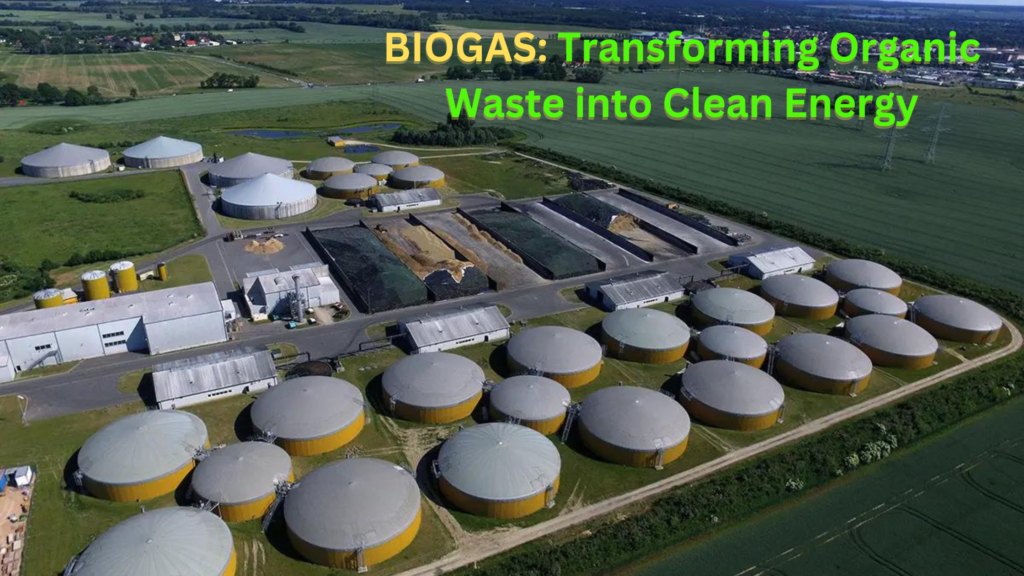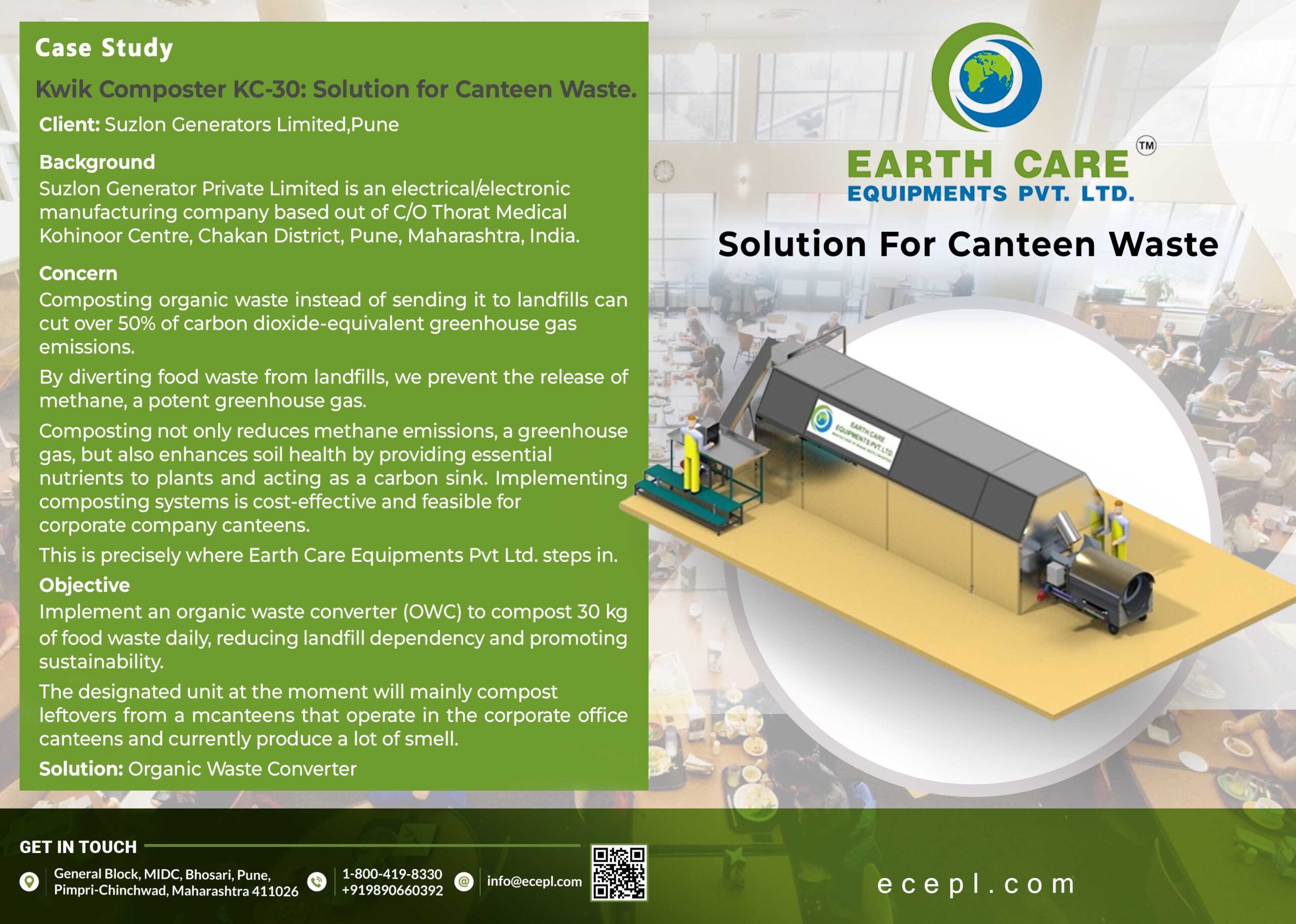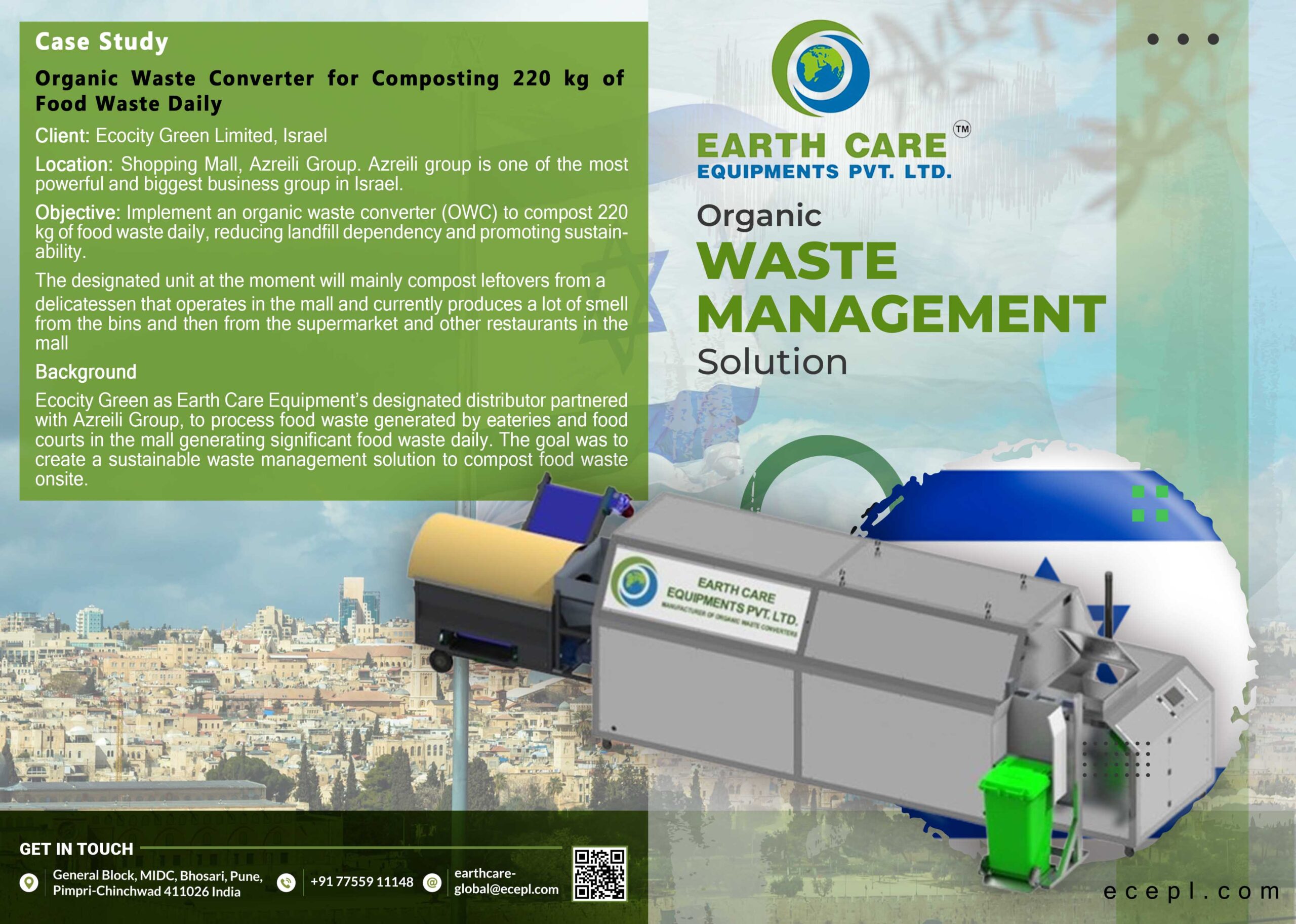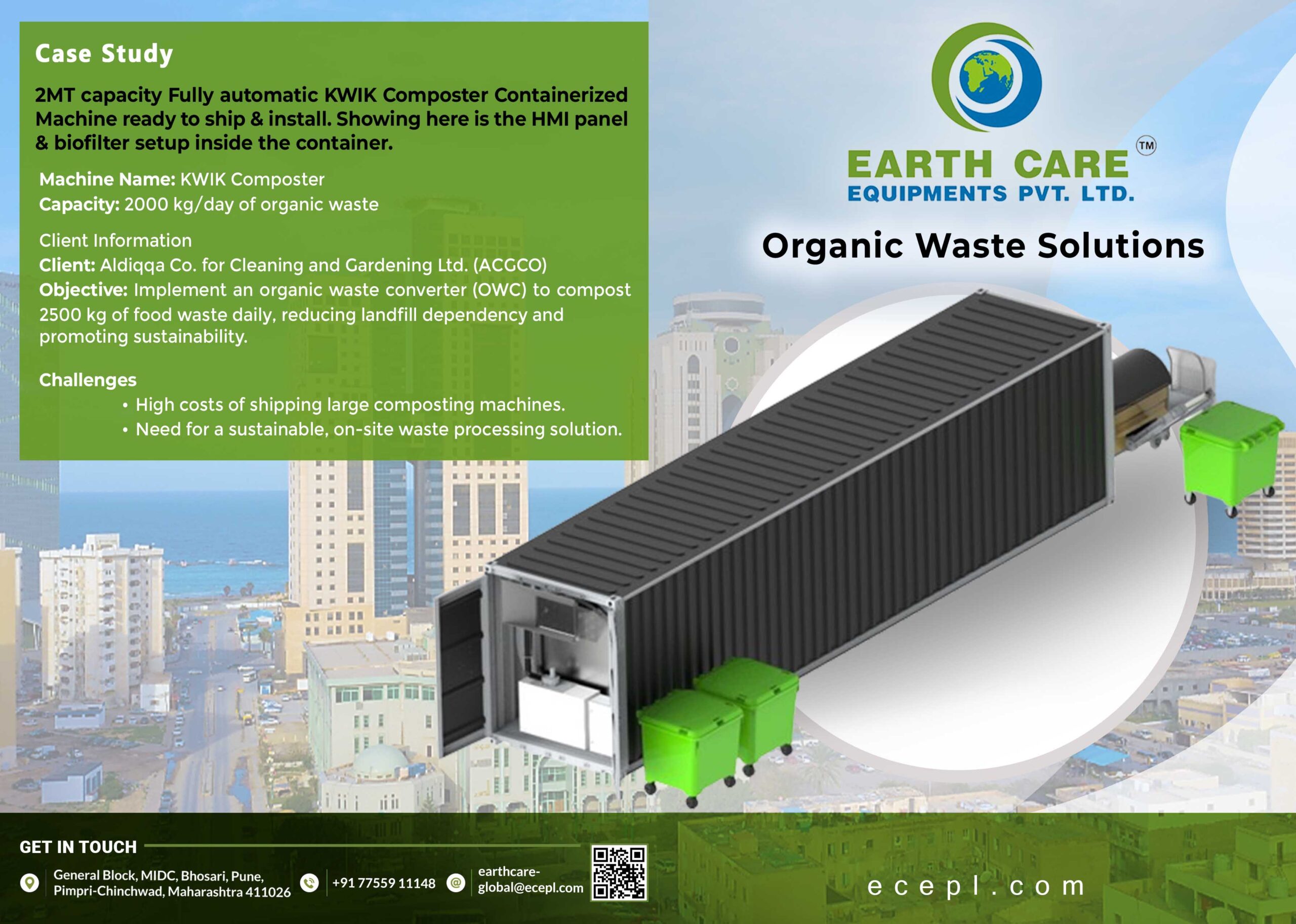
Introduction:
In today’s world, where sustainable solutions are gaining prominence, BIOGAS stands out as an advanced technology that not only addresses the challenges of solid waste management but also produces clean and renewable energy. By meticulously engineering a system that converts organic waste into biogas, this innovative solution offers numerous benefits, including reduced landfill waste and the generation of versatile energy for various applications. In this blog, we will explore the seamless functionality, efficiency, and cost-effectiveness of BIOGAS, highlighting its potential as a sustainable waste management strategy and a source of clean energy.
- Understanding BIOGAS –
BIOGAS is a renewable energy technology that harnesses the natural process of anaerobic digestion to convert organic waste into a combustible gas known as biogas. This organic waste can include various biomass sources such as food waste, agricultural residues, animal manure, and wastewater sludge. The anaerobic digestion process occurs in an oxygen-free environment, where microorganisms break down the organic matter, releasing biogas as a byproduct.
- Key Components of a BIOGAS System: A BIOGAS system typically consists of the following components:
- Feedstock Collection: Organic waste is collected from various sources, including households, agricultural farms, food processing industries, and wastewater treatment plants.
- Anaerobic Digester: The collected waste is then introduced into an anaerobic digester, a sealed vessel where the organic matter undergoes decomposition through bacterial activity. The digester provides an ideal environment for the microorganisms to thrive and produce biogas.
- Biogas Storage: The produced biogas, primarily composed of methane (CH4) and carbon dioxide (CO2), is stored in a gas holder or a dedicated storage tank for future use.
- Gas Utilization: The stored biogas can be utilized for various purposes, including cooking, heating, and electricity generation. Biogas can be used in conventional gas stoves, boilers, furnaces, and biogas engines or turbines to generate heat or electricity.
- Environmental and Economic Benefits: BIOGAS offers several significant advantages over traditional waste management practices:
- Waste Reduction: By diverting organic waste from landfills, BIOGAS significantly reduces the volume of waste deposited, mitigating the environmental impact of landfill sites.
- Renewable Energy Generation: Biogas is a clean and renewable energy source that can replace fossil fuels. The utilization of biogas for cooking, heating, and electricity reduces dependency on non-renewable energy sources and contributes to greenhouse gas emissions reduction.
- Nutrient-rich Digestate: After the anaerobic digestion process, the remaining organic material, known as digestate, is a nutrient-rich byproduct that can be used as a high-quality fertilizer for agricultural purposes. This closed-loop approach helps close the nutrient cycle and reduces the need for synthetic fertilizers.
- Cost-effectiveness: BIOGAS offers a cost-effective waste management solution, particularly for communities, businesses, and industries. The integration of BIOGAS into existing waste management practices maximizes operational efficiency and minimizes transportation costs associated with waste disposal.
Application Potential: BIOGAS finds application in various sectors:
- Domestic Use: In rural areas and off-grid communities, biogas can replace traditional cooking fuels such as wood, charcoal, or kerosene, providing a cleaner and more sustainable alternative.
- Industrial and Commercial Use: Industries can utilize biogas for process heating, steam generation, and electricity production, reducing their reliance on fossil fuels and lowering operational costs.
- Waste Treatment Plants: Municipalities and wastewater treatment plants can employ BIOGAS to treat sewage sludge, reducing odor emissions and generating energy simultaneously.
- Transport Sector: Biogas can be upgraded to biomethane, a renewable natural gas with similar properties to compressed natural gas (CNG). Biomethane can fuel vehicles, providing a greener alternative to conventional fuels.
Earthcare Equipment: Leading the Biogas Revolution:
Earthcare Equipment specializes in providing comprehensive solutions for solid waste management and biogas production. They conduct studies and assessments to develop effective waste management strategies for municipalities, covering collection, transportation, treatment (biogas and composting), product recovery, and safe disposal of solid waste. They also design, engineer, install, and operate integrated waste processing plants that utilize biomethanation technology to convert organic waste into biogas and produce compressed biogas (CBG) as a renewable fuel.
In addition, Earthcare Equipment manufactures and installs containerized biogas plants of various sizes, allowing for easy installation, relocation, and scalability. These containerized plants are suitable for establishments like hotels, hostels, canteens, resorts, and restaurants. They also offer decentralized biogas plants for treating segregated organic wet waste, providing a decentralized approach to waste management and energy recovery through biogas production.
Furthermore, Earthcare Equipment offers comprehensive operation and maintenance (O&M) services for biomethanation projects, ensuring the efficient and reliable operation of biogas plants. Their solutions are designed to be cost-effective, environmentally friendly, and efficient in biogas production. Overall, these services and solutions contribute to waste reduction, renewable energy generation, and the promotion of sustainable waste management practices.
Conclusion:
Earth Care Equipments Pvt. Ltd., presents a transformative solution for solid waste management that generates clean and renewable energy- Biogas Plant. It seamlessly integrates into existing waste management practices, providing cost-effective and efficient results. By adopting BIOGAS, communities, businesses, and industries can contribute to a greener future by reducing waste and achieving energy independence. Earth Care Equipments’ expertise in biogas technology enhances the system’s efficiency, ensuring optimal biogas production from organic waste. This approach reduces environmental impact, minimizes methane emissions, and supports the transition to a circular economy. The production of biogas also offers a reliable and renewable source of clean energy, reducing dependence on non-renewable fossil fuels. Overall, BIOGAS and Earth Care Equipments’ solutions provide a revolutionary path for sustainable waste management and clean energy generation.





nice article
Hi, after reading this amazing article i am too glad to share my familiarity
here with colleagues.
Here is my blog post – خرید بک لینک